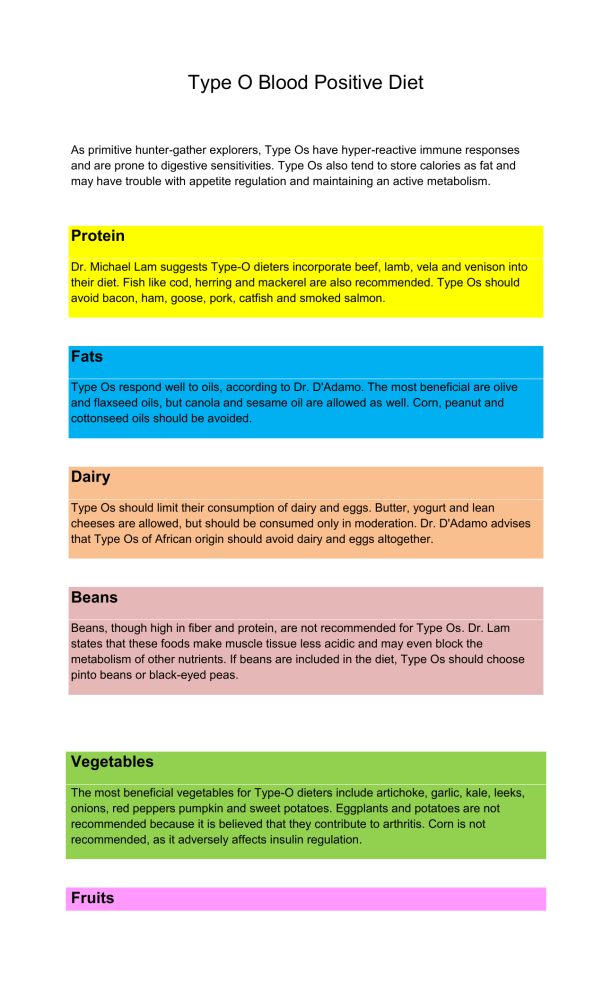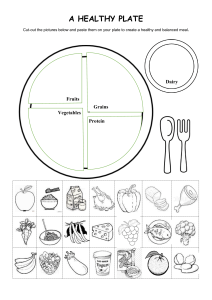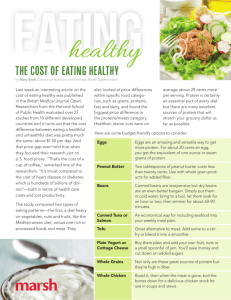
Type O Blood Positive Diet As primitive hunter-gather explorers, Type Os have hyper-reactive immune responses and are prone to digestive sensitivities. Type Os also tend to store calories as fat and may have trouble with appetite regulation and maintaining an active metabolism. Protein Dr. Michael Lam suggests Type-O dieters incorporate beef, lamb, vela and venison into their diet. Fish like cod, herring and mackerel are also recommended. Type Os should avoid bacon, ham, goose, pork, catfish and smoked salmon. Fats Type Os respond well to oils, according to Dr. D'Adamo. The most beneficial are olive and flaxseed oils, but canola and sesame oil are allowed as well. Corn, peanut and cottonseed oils should be avoided. Dairy Type Os should limit their consumption of dairy and eggs. Butter, yogurt and lean cheeses are allowed, but should be consumed only in moderation. Dr. D'Adamo advises that Type Os of African origin should avoid dairy and eggs altogether. Beans Beans, though high in fiber and protein, are not recommended for Type Os. Dr. Lam states that these foods make muscle tissue less acidic and may even block the metabolism of other nutrients. If beans are included in the diet, Type Os should choose pinto beans or black-eyed peas. Vegetables The most beneficial vegetables for Type-O dieters include artichoke, garlic, kale, leeks, onions, red peppers pumpkin and sweet potatoes. Eggplants and potatoes are not recommended because it is believed that they contribute to arthritis. Corn is not recommended, as it adversely affects insulin regulation. Fruits Plums, prunes, figs and limited amounts of grapefruit are the only fruits type Os should eat. Highly acidic fruits like oranges and strawberries may irritate the stomach lining. Melons and cantaloupes tend to have high mold counts, which may lead to allergy problems. Drinks Type Os should drink plenty of water, seltzer water, club soda and tea. Beer and wine are fine in moderation. However, coffee, distilled liquors and black teas should be avoided.




